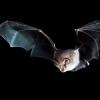It’s not about winning, it’s about the journey and what we learn along the path of that journey that really matters, writes Dr Guy Orchard.

I have been an IBMS member for over 30 years. I was not clear about what my career pathway might be, but I was enthusiastic, fairly hardworking and a curious type, always engaged in learning and training. After being a member of the IBMS Cellular Pathology Scientific Advisory Panel (SAP) for a number of years, I became the IBMS Chief Examiner for Cellular Pathology. It is a role that has a significant commitment for determining the development of examinations within my discipline, and it remains something that I have always taken very seriously as we have embraced the concept of conjoint examination boards with the Royal College of Pathologists (RCPath). Essentially, I have always been keen on education, staff development and, perhaps more importantly, science and knowledge acquisition.
Click here to read the full article.
Image credit | Shutterstock




